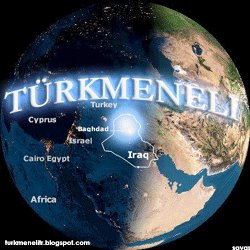
By Tulin Daloglu
November 1, 2005
washington times
When President Bush welcomed President Massoud Barzani of the Kurdistan Regional Government of Iraq to the Oval Office last Tuesday, the Turkish Foreign Ministry asked why he was being called "president." If one needs to put words in U.S. officials' mouth, they would say, "Turks are unpleasantly missing the point when it comes to the onus of our relations with the Kurds."
Robert S. Deutsch, the deputy senior adviser on Iraq to the secretary of state, explained at an exclusive briefing for the Turkish journalists that the title is granted to Mr. Barzani by the Iraqi constitution, and it doesn't present a threat to Iraq's territorial integrity and national unity. Still, practically, when Turks look at America as an example of a federal state, they see only one president to be welcomed abroad.As in Plato's "Allegory of the Cave," there is a strict contradiction between the reality and the truth as it appears today. What is real is that America is fighting against global terrorism, and Iraq is a needed front in that war. But fighting terrorism in Iraq was never meant to break up the country or create a Kurdistan that would threaten Turkey's territorial integrity.
The truth as it appears today is that Sunnis and Shi'ites are clashing for the first time since the war in Iraq began — which heightens anxiety about the possibility of a civil war. The insurgency continues. Iraqis still do not have security. And the Kurds are trying to maximize their gains and extend the borders of an autonomous Kurdistan.
The Washington Post reports that Iraqi Kurdish leaders are paying Kurds to resettle in Kirkuk for the expected 2007 referendum, which will define the city's region. Kirkuk is oil-rich, which would guarantee the Kurds enough wealth to survive independently. According to The Post, Lt. Col. Anthony Wickham said, "Does that bring greater stability to Kirkuk? No. It brings pandemonium."
Which is exactly the point. The Kurds are thinking more of their own welfare than that of Iraq as a whole. In addition, Kurds' reluctance to fight a terrorist Kurdish separatist organization — the PKK — confuses the situation, particularly in Turkey.
"We were accustomed to viewing them as tribal leaders," Gen. Hilmi Ozkok, the Turkish chief of general staff, said last Friday. "Now, Talabani is the President. Barzani is in another position. We have to accept the changes. If Jalal Talabani comes to Turkey tomorrow, he will come as a head of state."
Alas, Turkey has supported the political process in Iraq; more than 300 Iraqis — Kurds, Sunnis and Shi'ites — have been trained about building democratic institutions in the parliament and other state bodies. Clearly, Turkey's contributions in creating a united and democratic Iraq distinguish it from Syria and Iran.
Turkey is asking the United States to deal with the PKK in Northern Iraq simply because it asks for a reality statement. The PKK is a terrorist organization, according to the State Department's terrorism report, which wants to create an independent Kurdistan with land from the southeast and eastern parts of Turkey.
Kurds in Iran and Syria closely watch the Iraqi Kurds' experience with the United States. It echoes the worries among Turks whether the United States and Europe really believe the PKK is a terrorist organization.
Today's Turkey has begun the process of joining the European Union, and its improving democracy and human-rights record means its Kurdish citizens will benefit. But if Iraqi Kurdish leaders continue to shy away from acting against PKK terrorism, the people will once again suffer. They must state clearly that the PKK is not a human-rights group, and that Kurds can claim their rights peacefully and democratically.
Iraqi Kurds have fought alongside Turkish troops against the PKK in Northern Iraq before. If Iraqi Kurds hesitate to fight PKK terrorists, who kill Turkish citizens because they don't want to act against their fellow Kurds, how can Muslims be asked to fight radical Islamists like al Qaeda? Iraqi Kurds should assure Turkey that terrorism will not be part of the Kurdish quest for rights, and Turkey, the only democratic nation in the neighborhood, should protect them as it did during the first gulf war. The Turkish Parliament allowed U.S. jets to patrol the northern no-fly zone to protect Kurds from Saddam Hussein.
There is more friendship between the Kurds and the Turks than the animosity that clouds it. It is time that America sheds light on that friendship by acting against the PKK.
Tulin Daloglu is the Washington correspondent and columnist for Turkey's Star TV and newspaper. A former BBC reporter, she writes occasionally for The Washington Times.
